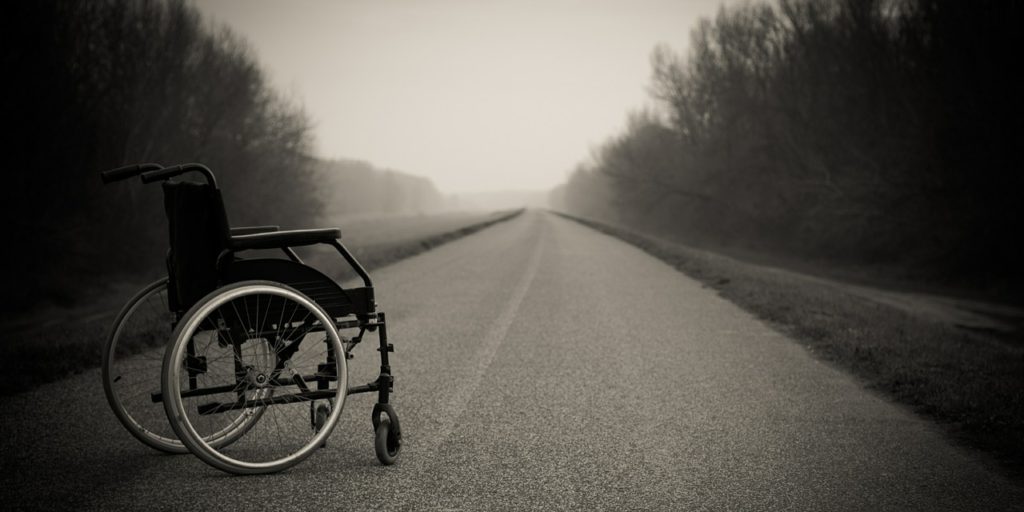- Federal government urged to take action on judicial vacancies - March 22, 2024
- Canada Disability Benefit should not be a windfall for insurers - January 17, 2024
- Cost award like a ‘bomb going off in the world of LTD litigation’ - October 24, 2023
By LegalMatters Staff • Auto accident benefits claimants have become forgotten victims in the aftermath of the COVID-19 lockdown and more needs to be done to ensure they receive the help they deserve, says Barrie-area litigator Steve Rastin
Social distancing necessary to combat the coronavirus has left many people unable to get the treatment they not only require, but paid for with their insurance premiums, says Rastin, managing partner with Rastin Law.
“There are many victims of COVID-19 but the victims that nobody is talking about are those who have been injured in auto accidents. They are the people left out in the cold,” he tells LegalMattersCanada.ca. “It’s the abled-bodied motorist who is the source of the public discussion. The fact that people can’t get treatment has been largely ignored.”
Much-needed therapy
Rastin referred to a report by Canadian Underwriter that examines the effect of the coronavirus shutdown on accident victims unable to receive much-needed therapy.
“People will regress rather than being able to maintain whatever progress they have made past an accident,” Rhona DesRoches, chair of the board of FAIR (Fair Association of Victims for Accident Insurance Reform), tells the magazine.
Rastin explains that in Ontario motorists who are hurt in a motor vehicle accident can receive Statutory Accident Benefits (SABS) that provide for such things as medical rehabilitation, personal support workers, rehabilitation support workers, occupational therapists and speech pathologists.
“We pay for these coverages with our auto insurance premiums because many of them are no longer provided by OHIP,” he says.
$1M in benefits
The coverage provides for up to $1 million in benefits for those seriously injured while the less injured can get up to $65,000 in treatment for up to five years, Rastin says.
“A lot of modelling shows that the ideal way for someone to get better is for them to receive treatment right after an accident. That’s why this no-fault system is in place,” he says. “The problem we have today is that there are hundreds of thousands of people who have been injured in car accidents who are already entitled to treatment but can’t get it.”
Rastin says treatments such as speech pathology can be done remotely but many others have been halted because of social distancing.
- Ontario needs to mandate auto insurance premium reductions
- Court rebukes defence practice of contacting doctors for records
“For some people – such as those who are quadriplegic or paraplegic – not receiving treatment can be life-threatening,” he says. “Even for less severely injured victims, their recovery might be diminished. If people stop getting treatment, they are going to get worse.
“The interesting thing is that there will be people who might have gotten better and wouldn’t have had tort claims but they will now.”
Another problem, Rastin says, is that coverage only lasts for five years so those not being treated because of the coronavirus shutdown could end up losing out on their full five-year entitlement.
“Let’s assume these social distancing measures continue for six months or a year, which is not unreasonable. This means you could lose up to 20 per cent of your coverage window,” he says. “Everyone has benefits on the clock and the clock is ticking so what is the insurance industry going to do? How are they going to deal with this?”
Extend the window
The only fair solution, Rastin suggests, is to extend the window of coverage for those whose treatment has been interrupted.
“Keep in mind it wouldn’t cost anything extra because the services are not being used now,” he notes. “The unintended winners in this crisis appear to be automobile insurers not only because much fewer people are driving but because people who have been in accidents are unable to obtain the services that they desperately need and have paid for already.”
Rastin says health care workers were once able to go to a patient’s home to offer treatment but coverage for that has ended.
“Why not put that coverage back in place in the short-term?” he suggests. “It’s not ideal but maybe therapists could wear hazmat gear and provide some of their services in people’s home and we should cover the funding for that.”
Rastin says it’s time for insurance companies to try a fresh approach to deal with the fallout from the pandemic.
“The industry is in a situation where they’re still taking in the premiums but they’re not really paying out and what we need to do is highlight what’s going on,” he says. “At minimum, there ought to be extreme rebates for consumers.”
Fewer cases
Rastin says it could easily be argued that there have been fewer collision damage cases and fewer accidents causing injury during the coronavirus crisis.
“Let’s not forget, drivers are still paying their premiums. How much relief have the people of Ontario received from the insurance industry? I don’t think very much,” Rastin says. “In a situation where people are struggling wouldn’t it be nice if insurance companies sent a cheque for a few hundred dollars and said ‘Here, maybe you can use this toward your rent?’”
The bottom line, he says, is that it’s about time to look at those who have fallen through the insurance cracks.
“There’s no real discussion about providing temporary relief for people who desperately need it right now. We shouldn’t just be talking about relief for the able-bodied individuals who aren’t in accidents” Rastin says. “The ethical thing to do would be for us to discuss how to enhance the benefits for the silent victims sitting at home who can’t receive treatment because of COVID-19.”

